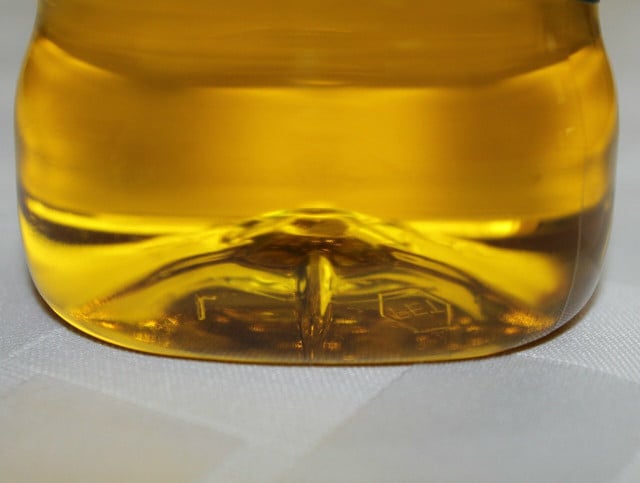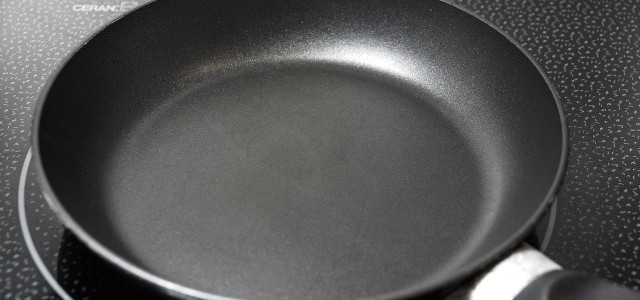If you’ve never frozen olive oil, you’re missing out. We’ll discuss when you might want to, the benefits of freezing olive oil and how to do it properly.
Olive oil, a staple in kitchens worldwide, boasts a versatility that extends beyond immediate use. “Can you freeze olive oil?” is a question that might come up when you’re dealing with an excess of it and want to reduce your food waste.
If you find yourself with a surplus, rather than risking spoilage, you can absolutely freeze it. Unlike water, olive oil freezes at a lower temperature, around 10°F, making it suitable for long-term storage.
Various scenarios may prompt you to freeze olive oil:
- Accidental Freezing: Should your olive oil unintentionally freeze in colder climates, there’s no cause for alarm. It’s perfectly usable.
- Herb Preservation: Immersing herbs like garlic or chili in olive oil and freezing them both preserves these herbs and intensifies their flavors, imbuing a richer taste into your dishes when used later.
- Olive Oil Preservation: If the concern is the olive oil itself going rancid, freezing can offer an effective solution. This process helps extend the oil’s shelf life without adversely affecting its taste or texture.
What Are the Benefits of Freezing Olive Oil?
Just as you might consider placing a surplus of fresh fruits or vegetables in the freezer to maintain their nutritional value and extend their shelf life, freezing olive oil offers its own advantages.
While it may seem unconventional, freezing olive oil can make cooking faster and easier, reduce waste and save money.
Here are a few benefits of freezing olive oil:
- Preservation of Nutritional Content: Olive oil is loaded with heart-healthy monounsaturated fats and potent antioxidants like oleocanthal, which have anti-inflammatory properties. Freezing olive oil helps to retain these nutrients over a longer period.
- Prolonged Shelf Life: Freezing food items significantly extends their shelf life. Usually, olive oil lasts around 18-24 months if stored in a cool, dark place. If you freeze it, you can extend this period considerably, and the oil will not lose any of its characteristics or quality.
- Flavor Retention: The delicate and complex flavors in high-quality olive oil can degrade over time due to exposure to heat, light and oxygen. Freezing preserves those subtle notes and fragrances.
- Economic Efficiency: If you buy olive oil in bulk, freezing it can be economically advantageous. The cost of cooking oils can add up, especially for high-quality extra virgin varieties. Buying in bulk often reduces the cost per volume. Freezing allows you to store the surplus oil without risking it going rancid, effectively saving money.
- Convenience: Freezing olive oil in ice cube trays gives you the convenience of having a pre-measured amount of oil ready for cooking or baking. It’s a time saver when you’re prepping for meals.
- Waste Reduction: In line with sustainable living practices, freezing olive oil reduces food waste. Cooking oil does go bad, and if you can’t use it before it spoils, freezing gives you a way to use every last drop at your own pace.
A few caveats: freezing and thawing may cause olive oil to become cloudy. This is perfectly normal and doesn’t affect the quality or safety of the oil. Once it reaches room temperature, it should regain its usual clarity.
How to Freeze Olive Oil



Now that you’ve gotten a positive answer to “Can you freeze olive oil,” let’s look at how to do it.
When subjected to freezer temperatures of around 50°F, olive oil starts to solidify. If you’re aiming for individual servings, an ice cube tray is a practical tool for freezing olive oil. Fill the tray compartments with the oil and gently position it in your freezer.
For preserving larger quantities, opt for airtight glass containers. They best maintain the quality of your oil. If you plan on freezing the olive oil for over a month, consider enclosing your container in a reusable freezer bag (like those available on Amazon**) for extra protection.
Frozen olive oil can remain fresh for up to 18-24 months. However, remember that once thawed, the oil can degrade rather swiftly. As such, it’s advisable to freeze your olive oil in small, manageable quantities, enabling you to thaw only what’s immediately needed. This strategy minimizes waste and ensures the freshness of your olive oil each time you use it.
How to Thaw Your Oil



The method you should use to thaw your olive oil can vary based on the type of container used for freezing and how you want to cook with it. If the oil is frozen in a sealed glass container, immerse the bottle in a sink or container filled with warm water to gradually revert the oil to a liquid state.
If you notice small particulates appear during thawing, there’s no need for concern. These are simply oil molecules that became separated when the oil solidified.
The process is also straightforward for those who’ve opted to freeze their oil in an ice cube tray for cooking purposes. Simply add the required amount of frozen olive oil cubes directly into your cooking pan. The heat will swiftly melt the oil, and the process won’t harm the oil’s flavor.
Read more:
- Can You Freeze Tofu? 4 Hacks to Revolutionize Your Cooking
- 7 Smart Household Hacks for Freezing Foods Without Plastic
- Freezing Soup: Methods, Tips and Tricks
Do you like this post?








